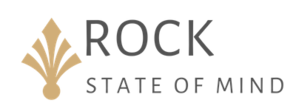
28 Nov Everything You Need to Know About No Doc Loans
If you’re a business owner, you’ve probably encountered numerous issues when it comes to borrowing money. It can become so frustrating, and it may seem like you will never be able to get a mortgage or buy a house just because you can’t offer the required paperwork to get the financial aid. But, have you heard of no doc loans? These could be a complete saviour if you are looking to borrow money. If you have no idea what a no doc loan is, keep reading to find out everything you need to know about them.
What is a No Doc Loan?
Although the term makes it sound complicated, this finance option actually has a relatively simple definition. The word ‘doc’ is actually short for documents. Therefore, this means it is a finance option that you are able to apply for without needing to provide the potential lender with lots of proof of your income. This is different from most finance options as banks and lenders will often require multiple payslips, tax returns or other forms of proof of income.
Who Can Get One?
The great thing about this option is that almost anyone is eligible. Many people who are self employed struggle to borrow money from lenders purely because they don’t have the documents to prove their income. But, because of the nature of a no doc loan, this isn’t an issue, you will not need to provide any forms to detail how much you earn. This makes it a perfect option for people who are self employed, or who have a fluctuating income. So in simple terms, almost anyone is eligible to get this form of finance.
What Can I Borrow Money for?
Similar to any other finance option, you are usually able to borrow money in order to fund a range of things. If you are looking at this type of finance because you are a business owner, or are self employed, it may be relevant to note that you are able to borrow money to assist with the growth of your business. Furthermore, it is also possible to borrow money consolidate current debts. Probably the most exciting thing you are able to borrow money for, though, is to buy a house.
Is There a Limit on How Much I borrow?
This depends on what financial institution you borrow from and your current situation. Most of the time there will be a cap of $1,000,000 meaning this is the maximum amount anyone will let you borrow. However, the reason for borrowing the money and your credit rating will also be taken into consideration. Specifically, in terms of mortgages, the maximum you will be lent is about 80% of the property value for residential buildings. If you are looking into a commercial building, you are only likely to be offered up to 65% of its value.
Are the Interest Rates Higher with this Type of Finance?
With any form of money borrowing, the interest rates will vary depending on a range of significant factors. Some of these factors include which financial institution you choose to borrow from, how much money you are asking for, and the state of your credit history. As a general rule, no doc loans do have a slightly higher interest rate. The reason for this is because they are designed as a short term finance option so the interest usually goes up after a period of time (usually after a few years). Another reason for this is because it is a ‘rate for risk’ form of financing. In simple terms, the riskier you are to the lender, the higher the interest rate will be. Most of the time, you are unlikely to find interest rates lower than 7% p.a and they will most often go up to about 11% p.a.
Do I Still Have the Same Mortgage Options?
Aside from the higher interest rate, more often than not, you will be able to choose from a range of options in the same way you would with a regular mortgage. This means you will still be offered options like: fixed interest rates, variable interest rates, line of credit, withdraw facility, 100% offset account and salary crediting. Although the process of obtaining the funds is slightly different, in regards to the lack of documentation you need to provide, the other parts of securing your mortgage should be relatively similar to standard home financing. This means that you will still be given a choice about repayment methods and interest rates. If you are concerned that you will not have as much control as you would with a normal mortgage, you have no reason to worry, as you should still be able to tailor the financing to your situation.

Sorry, the comment form is closed at this time.